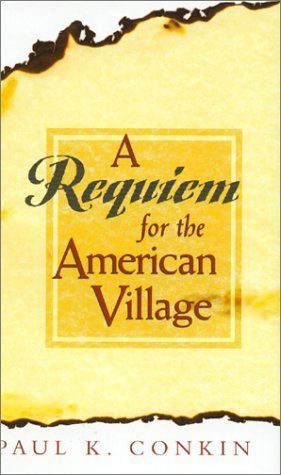
A Requiem for the American Village
In this long awaited volume, Paul K. Conkin, one of America's most distinguished intellectual historians, offers his commentary on almost every aspect of the American past. Delivered to a wide variety of audiences over more than a quarter of a century, these essays are simultaneously informal, profound, graceful, and self-revealing. A common theme shared by all the essays is the ambiguous results of our nation's transition from relatively homogeneous communities, villages, and regions to a cosmopolitan culture with a centralized, regulatory welfare state, and an increasingly mobile and pluralistic population. The village's sense of local autonomy has all but disappeared in the face of these trends. With an almost melancholy sense of what has been lost, Conkin charts the strains and tensions that have marked this incredible transition. But Conkin is also acutely aware of the necessities that have fueled these changes, as well as the many benefits of the new order, ranging from an unprecedented level of affluence to the full citizenship gained by minorities. A reluctant Southerner, Conkin has not forgotten the exclusivity, intolerance, and repression that often mark provincial communities. Conkin reflects on the historians' craft and the influence of his own past on the subjects he studies. A Requiem for the American Village is infused with Conkin's razor sharp sense of historical memory and historical consciousness. From the foundations of American government to the tensions of contemporary cultural pluralism, Paul Conkin offers powerful insights not only about the tortured history of the South, but the promises and pitfalls of the American experiment.